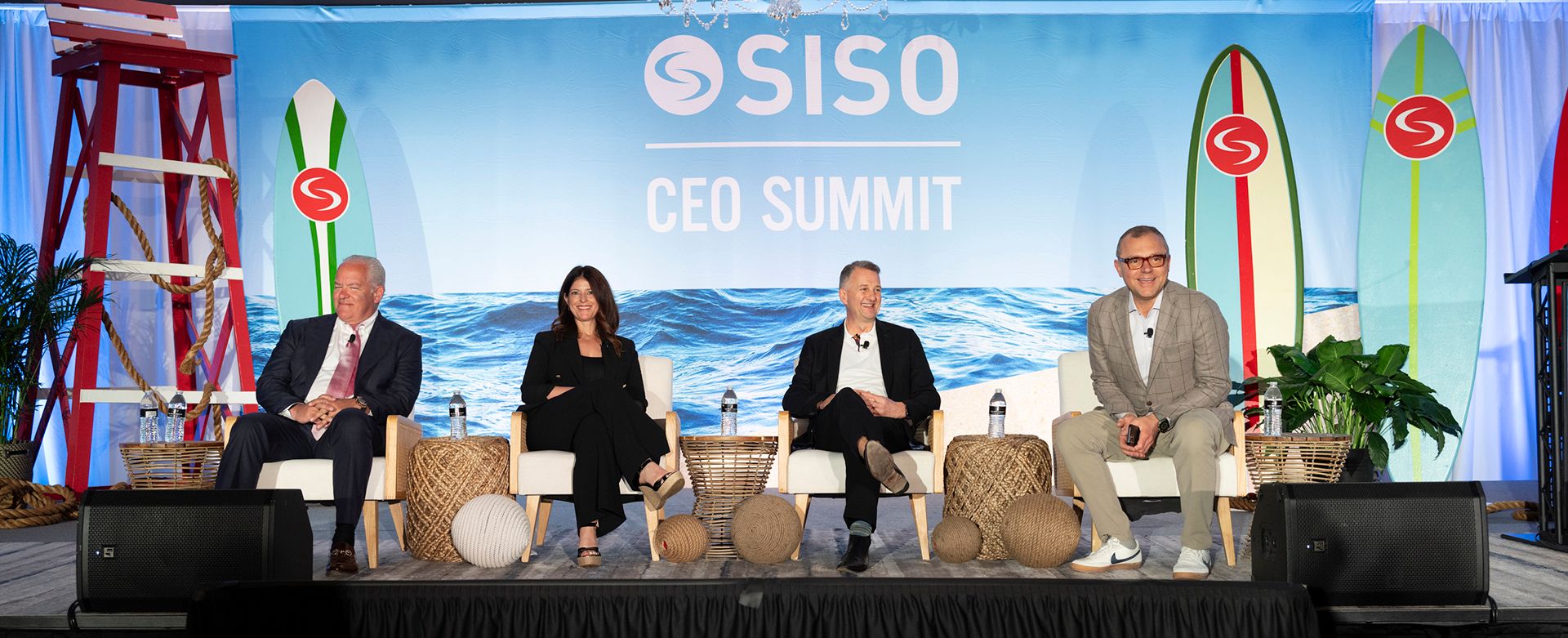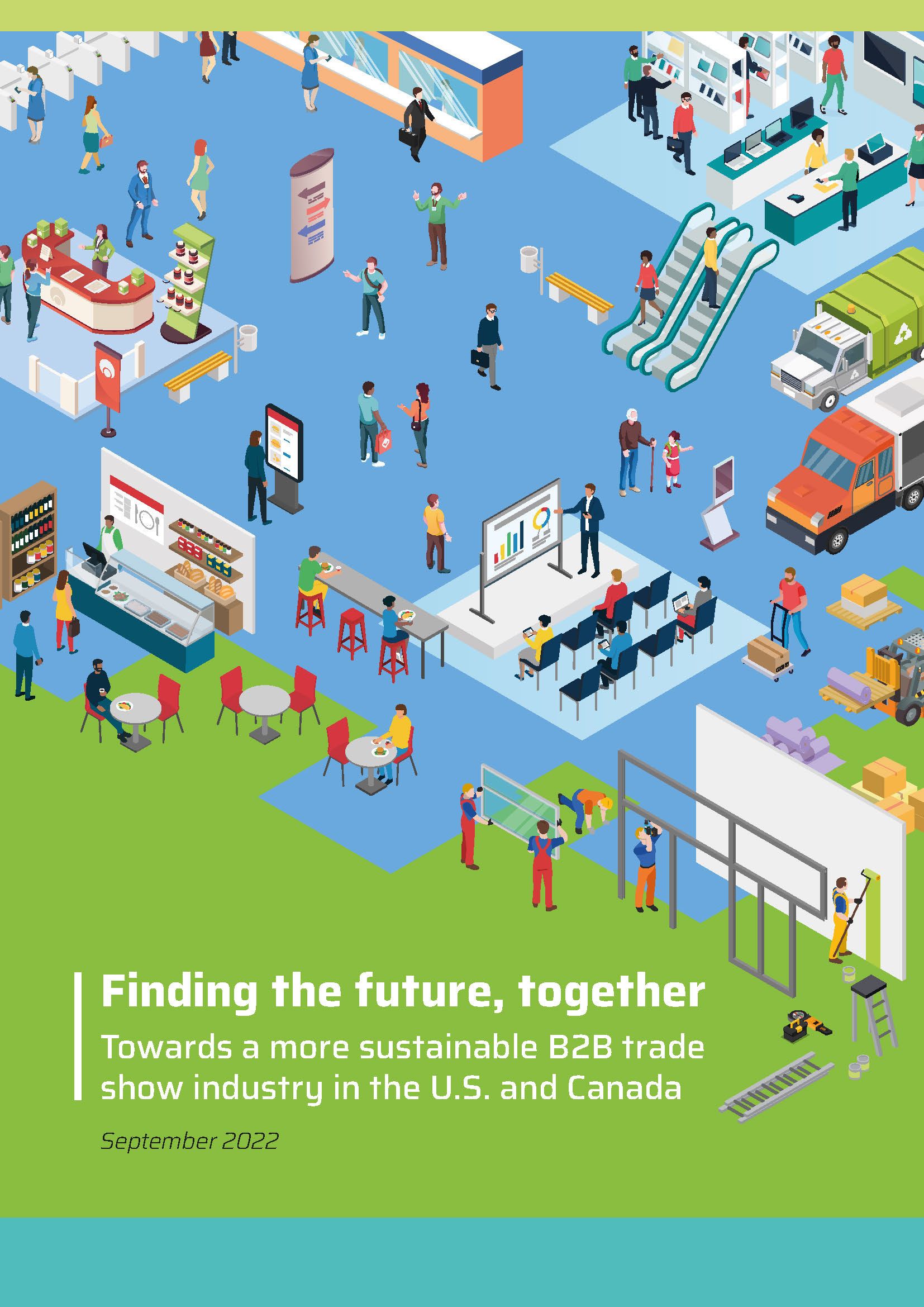The global exhibitions industry delivers enormous social and economic benefits. It’s an essential engine for connection, trade, learning, and employment creating millions of jobs and billions in economic activity worldwide.
Like all industries, we are working towards being a more sustainable, low-carbon industry – but we recognize we need to do more, faster, and we wanted to understand in more detail where the real areas for focus should be.
Leading businesses and stakeholders from across the industry have sponsored a two-year independent research project to gather authoritative baseline data on, and analysis of, the current environmental impact of the US and Canadian B2B trade show industry.
This report – produced by independent researchers Little Blue Research and A Bird’s Eye View and overseen by a task force made up of representatives from more than a dozen of the leading businesses and associations in the sector – summarizes the research’s insights. The report identifies six areas of greatest ‘Material Impact,’ quantifying each impact, highlighting the progress already made to reduce that impact and looking towards ways of further reducing the impact in the future.
- Carbon emissions from participant travel
- Carbon emissions from venues
- Carbon emissions from logistics
- Material waste from venues
- Waste from GSC warehouses
- Booth materials
The report highlights the many good sustainability practices already in use by many of the industry’s key players – associations, venues, organizers, and service providers, such as:
- Venues and organizers working together to encourage exhibitors to create highly reusable ‘pipe and drape’ booths and to construct custom booths from reusable and easily recycled materials, as well as to specify use of recyclable and reusable materials throughout venues for e.g. carpeting and signage.
- Organizers and venues agreeing energy management plans to optimize the use of lighting, heating, and cooling before during and after the event is taking place; venues installing solar power arrays to provide a source of renewable energy.
- Innovating to enable, complex booth structures to be made from reusable and 100% recyclable materials which are also lighter and so produce lower carbon emissions from their transportation.
- Recommending more sustainable travel options to event participants, and offering high-quality carbon offsets to attendees as part of the registration process.
The report also sets out a high-level roadmap for change covering 30 ‘quick wins’ and longer-term actions the industry can take to move towards a more sustainable future.
But the report – and the research it summarizes – is primarily designed to provide the data and analytical bases on which the industry can confidently establish priorities for action and develop sustainability policies.
The report’s sponsors look forward to every industry organization joining them to help set actionable plans toward common sustainability goals through initiatives such as Net Zero Carbon Events Initiative and the EIC’s Centre for Sustainability and Social Impact.


